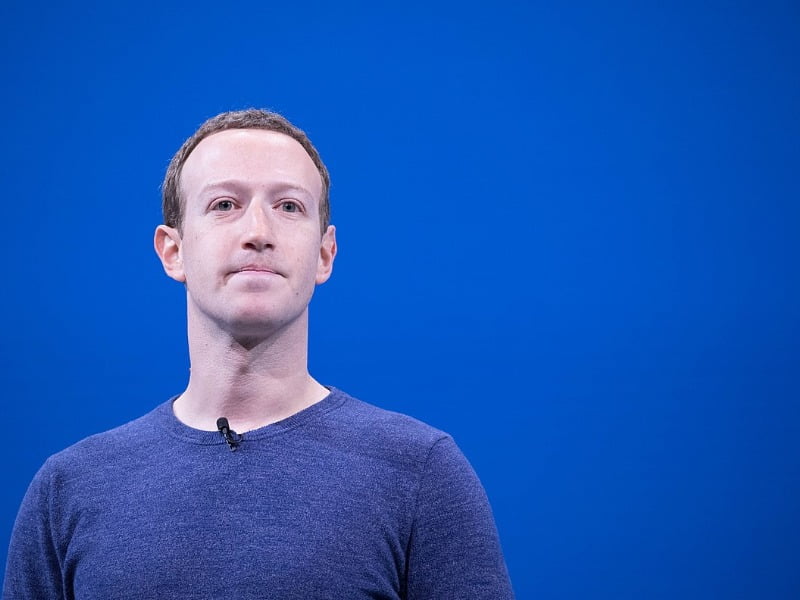Facebook has followed through on its threat to go nuclear and has blocked all news content from the newsfeed of its Australian users as its two-fingered response to the federal government’s controversial media bargaining code.
The media bargaining code had passed through the lower house of Parliament with bipartisian just hours before Facebook block Australian news content.
In a blog post on Thursday morning, Facebook Australia managing director William Easton said it would “restrict publishers and people in Australia from sharing or viewing Australian and international news content”.

This rolled out gradually for Australian users, with the Facebook pages of numerous news sites appearing empty, and users unable to post links to various stories.
“The proposed law fundamentally misunderstands the relationship between our platform and publishers who use it to share news content,” Mr Easton said.
“It has left us facing a stark choice: attempt to comply with a law that ignores the realities of this relationship or stop allowing news content on our services in Australia. With a heavy heart, we are choosing the latter,” he said.
The media bargaining code will force Facebook and Google to enter into final offer arbitration with media companies to determine revenue sharing deals for the use of news content and also provide advance notice of relevant algorithmic changes as a result of human intervention.
Facebook first threatened to block news content in response to the code back in September last year and has since largely stayed out of the fray, with Google leading the charge against the proposal.
While also threatening to block its service in Australia, Google has taken a different approach to the bargaining code, racing against time to ink deals with media companies for its Showcase service in order to avoid being designated under it.
Google has now finalised deals with Seven West Media, Nine and News Corp this week, with each believed to be worth more than $30 million annually.
But Facebook said that it has a “fundamentally different relationship with news” compared to Google.
“Google Search is inextricably intertwined with news and publishers do not voluntarily provide their content. On the other hand, publishers willingly choose to post news on Facebook, as it allows them to sell more subscriptions, grow their audiences and increase advertising revenue,” Mr Easton said.
“This legislation sets a precedent where the government decides who enters into these news content agreements, and ultimately, how much the party that already receives value from the free service gets paid,” he said.
“We will now prioritise investments to other countries, as part of our plans to invest in new licensing news programs and experiences.”
In a joint press conference, Treasurer Josh Frydenberg and communications minister Paul Fletcher hit back at Facebook, and said the government was still committed to legislating the bargaining code.
Mr Frydenberg labelled Facebook’s move as “wrong”, “heavy-handed” and that it will “damage its reputation here in Australia”.
“Their decision to block Australians’ access to government sites – including support services through the pandemic, mental health, emergency services, the Bureau of Meteorology – were completely unrelated to the media code,” Mr Frydenberg told the media.
The Treasurer said he had a “constructive” conversation with Facebook chief executive Mark Zuckerberg on Thursday morning, but was not given any notice of the company’s plan to block news content.
“Facebook up to this point had been engaged in pretty constructive conversations with the media businesses – they had made quite a lot of progress and deals were relatively close,” Mr Frydenberg said.
After passing the legislation through the lower house on Wednesday night, the government will still plow ahead with the code and soon pass it through the Senate.
“We will legislate this code. Facebook is in no doubt that we’re committed to the code – their actions today were unnecessary and wrong,” Mr Frydenberg said.
“We’ve been sticking to our principles and we’ve been sticking to our guns. We’ll see if we can reach some clarifications and get them back to the table and keep them providing their service in Australia. But our number one commitment is to legislate this code.”
The bargaining code legislation was supported in the House of Representatives with a series of “technical” government amendments.
This was despite a number of Labor MPs raising concerns with unanswered questions around the code, the power of the Treasurer to designate companies, and whether it will actually improve media diversity.
With Google signing a series of deals with Australia’s largest media companies, the government has raised the potential that the tech firm may not be designated under the code.
Shadow communications minister Michelle Rowland said there needs to be some clarity around the government’s intentions around the designation process.
“It is not clear how the government will achieve the intention of levelling the bargaining position between the news media and digital platforms if the negotiate-arbitrate provisions of this bill do not apply,” Ms Rowland said.
“For this reason, Labor recommends that the government use precise language in public statements regarding what designations it intends to make under the code. This is in order to save any misunderstanding or unnecessary uncertainty for the media, the digital platforms, small businesses and citizens and consumers who may be impacted.”
In response to these concerns, Mr Fletcher said the designation decisions will be up to the Treasurer, based on advice from the competition watchdog.
“Ultimately it will be a decision for the Treasurer, based upon advice provided to him by the ACCC, and that advice will be given against the backdrop of the overall market conditions, including and of course informed by what has been the extent to which deals have been done and who the parties are to those deals,” he said.
Mr Frydenberg has continually refused to “pre-empt” any designation decisions, but has said that the signing of commercial deals does “change the equation”.
Do you know more? Contact James Riley via Email.

